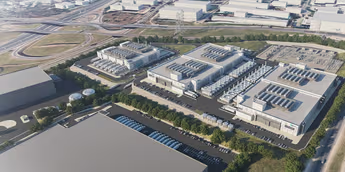Why Nigeria’s Problems Go Beyond the Constitution – Analysis

By Erewunmi Peace
Despite ongoing calls for constitutional reform in Nigeria, political analyst and scholar Ebenezer Obadare warns that amendments alone cannot address the country’s deeper dysfunctions. In a recent piece published by the Council on Foreign Relations, Obadare argues that Nigeria’s governance challenges are rooted more in cultural and civic disintegration than legal structures.
Two Groups, One Goal: Reform
In recent months, two major groups—the Parliamentary System Support Group (PSSG) and the elder statesman-led The Patriots—have reignited the call for restructuring.
The PSSG convened in Abuja to propose a homegrown parliamentary system that reflects Nigerian values and traditions. The group criticized the presidential system as “not working” and inconsistent with local cultures.
The Patriots, led by former Commonwealth Secretary-General Emeka Anyaoku, went further, declaring the 1999 Constitution unfit for Nigeria’s pluralistic society. They urged a return to the federal constitution of 1963 and demanded the formation of a national constituent assembly to draft a people’s constitution.
The Underlying Issues
While these proposals sound promising, Obadare contends that they miss the point. Nigeria’s problems are not just constitutional—they are behavioral and cultural.
He illustrates this with painful examples:
Lawlessness on the streets, such as rampant traffic violations.
Public disorder and decay, with cities overwhelmed by waste and lacking basic sanitation.
Mob justice, including a harrowing incident where a man accused of theft was publicly tortured with hot oil.
These examples, Obadare argues, reflect a collapse in social values and civic order, which no constitution can fix on its own.
Why Amendments Won’t Be Enough
Obadare doesn’t deny the value of constitutional reform—but he strongly warns against treating it as a silver bullet. According to him:
“Order is one thing you cannot legislate into existence.”
Even if Nigeria adopts a new constitution, it won’t magically end corruption, lawlessness, or social decay. The real crisis, he argues, lies in a national culture that tolerates impunity, devalues human life, and ignores collective responsibility.
What Nigeria Really Needs
To move forward, Nigeria must undergo a radical civic transformation—one that includes:
A nationwide conversation about dignity, law, and shared values.
A moral reckoning about the state of public life, leadership, and societal norms.
Engagement beyond political elites—ordinary citizens must be involved.
This, Obadare believes, is the conversation Nigerians have yet to confront.
Conclusion
Constitutional amendments may help, but they are no substitute for a deeper national renewal. As Nigeria marks over two decades of democratic rule, the question is no longer just how to govern—but who we are as a people.
Until that question is answered with honesty and courage, no constitution—new or amended—can heal the soul of the nation.

































































































































































































































































































































































































































































































































































































































































































































































































































































































































































































































































































































































































































































































































































